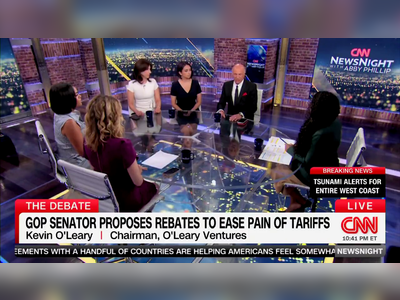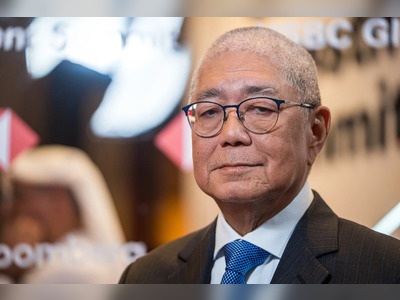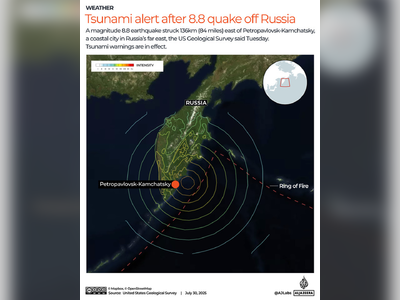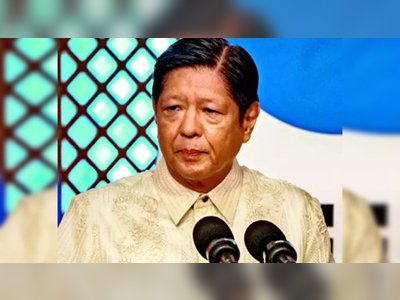Manila Times
Upholding Truth. Empowering the Philippines
Thursday, Jul 31, 2025
The Nation's Story is Told with Honor
Philippine Officials Address Meta's Role in Combatting Fake News
Government officials emphasize the need for accountability and regulation of social media platforms amid rising disinformation in the Philippines.
In recent discussions, Jay Ruiz, the Secretary of the Presidential Communications Office (PCO), underscored the critical importance of Meta, the parent company of Facebook and Instagram, in curbing the spread of fake news on social media platforms.
The Philippines has experienced a marked increase in the dissemination of disinformation and misleading content, particularly affecting various government branches.
To address these concerns, President Ferdinand ‘Bongbong’ Marcos Jr. has mandated the urgent resolution of disinformation issues, especially relating to the circulation of fake news targeting prominent personalities.
During a hearing conducted by a House tri-committee investigating online disinformation, Ruiz recounted an incident involving a false memorandum that allegedly originated from the Office of the Executive Secretary.
According to Ruiz, Meta declined to remove this content, despite receiving validation from the Cybercrime Investigation and Coordinating Center (CICC) of the Department of Information and Communication Technology (DICT) confirming that the memo was indeed fake.
Ruiz stated, "Despite our report, the platforms maintain that they adhere to freedom of expression and community standards, asserting that individual users are accountable for their accounts." He raised concerns regarding the lack of regulatory power that Meta and similar platforms wield in the Philippines, asserting that these companies do not base operations in the country or contribute to its tax revenues, yet they do not take adequate measures to combat the spread of misinformation.
The dissemination of false information is perceived as detrimental to public trust and undermines the government’s efforts to address the needs of the people.
Additionally, President Marcos highlighted the necessity for accurate information dissemination to ensure that citizens can fully benefit from government programs, such as the initiative providing rice at P20 per kilogram to enhance food security and social support.
Ruiz further pointed to practices in Singapore, where online platforms can incur penalties of up to 6% of their profits if deemed responsible for the dissemination of fake news.
This approach reinforces the notion of digital accountability within that nation.
He stated, "Penalties against social media platforms can be substantial—6% of profits for the propagation of false news."
The potential consequences of misinformation are significant, especially regarding voter decisions based on inaccurate information.
Ruiz emphasized the impact on democracy, stating, "If our citizens base their decisions on lies, what kind of generation and democracy are we fostering?" He acknowledged the fundamental right to information but insisted that it must be rooted in accuracy, indicating the imperative need for platforms to take responsibility for the truthfulness of the content they host.
The Philippines has experienced a marked increase in the dissemination of disinformation and misleading content, particularly affecting various government branches.
To address these concerns, President Ferdinand ‘Bongbong’ Marcos Jr. has mandated the urgent resolution of disinformation issues, especially relating to the circulation of fake news targeting prominent personalities.
During a hearing conducted by a House tri-committee investigating online disinformation, Ruiz recounted an incident involving a false memorandum that allegedly originated from the Office of the Executive Secretary.
According to Ruiz, Meta declined to remove this content, despite receiving validation from the Cybercrime Investigation and Coordinating Center (CICC) of the Department of Information and Communication Technology (DICT) confirming that the memo was indeed fake.
Ruiz stated, "Despite our report, the platforms maintain that they adhere to freedom of expression and community standards, asserting that individual users are accountable for their accounts." He raised concerns regarding the lack of regulatory power that Meta and similar platforms wield in the Philippines, asserting that these companies do not base operations in the country or contribute to its tax revenues, yet they do not take adequate measures to combat the spread of misinformation.
The dissemination of false information is perceived as detrimental to public trust and undermines the government’s efforts to address the needs of the people.
Additionally, President Marcos highlighted the necessity for accurate information dissemination to ensure that citizens can fully benefit from government programs, such as the initiative providing rice at P20 per kilogram to enhance food security and social support.
Ruiz further pointed to practices in Singapore, where online platforms can incur penalties of up to 6% of their profits if deemed responsible for the dissemination of fake news.
This approach reinforces the notion of digital accountability within that nation.
He stated, "Penalties against social media platforms can be substantial—6% of profits for the propagation of false news."
The potential consequences of misinformation are significant, especially regarding voter decisions based on inaccurate information.
Ruiz emphasized the impact on democracy, stating, "If our citizens base their decisions on lies, what kind of generation and democracy are we fostering?" He acknowledged the fundamental right to information but insisted that it must be rooted in accuracy, indicating the imperative need for platforms to take responsibility for the truthfulness of the content they host.
AI Disclaimer: An advanced artificial intelligence (AI) system generated the content of this page on its own. This innovative technology conducts extensive research from a variety of reliable sources, performs rigorous fact-checking and verification, cleans up and balances biased or manipulated content, and presents a minimal factual summary that is just enough yet essential for you to function as an informed and educated citizen. Please keep in mind, however, that this system is an evolving technology, and as a result, the article may contain accidental inaccuracies or errors. We urge you to help us improve our site by reporting any inaccuracies you find using the "Contact Us" link at the bottom of this page. Your helpful feedback helps us improve our system and deliver more precise content. When you find an article of interest here, please look for the full and extensive coverage of this topic in traditional news sources, as they are written by professional journalists that we try to support, not replace. We appreciate your understanding and assistance.











